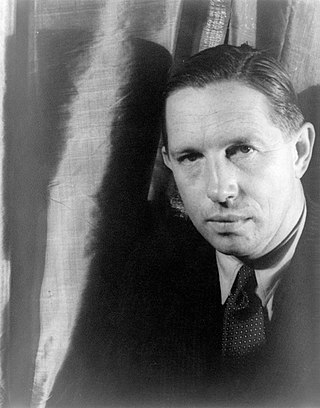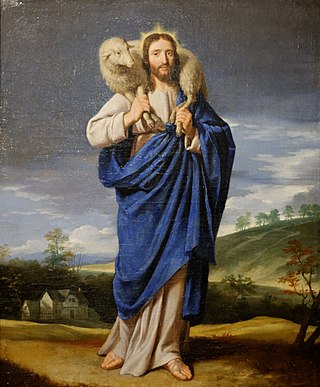Agrarianism is a social and political philosophy that promotes subsistence agriculture, family farming, widespread property ownership, and political decentralization. Adherents of agrarianism tend to value traditional bonds of local community over urban modernity. Agrarian political parties sometimes aim to support the rights and sustainability of small farmers and poor peasants against the wealthy in society.
Natural law is a system of law based on a close observation of natural order and human nature, from which values, thought by natural law's proponents to be intrinsic to human nature, can be deduced and applied independently of positive law. According to the theory of law called jusnaturalism, all people have inherent rights, conferred not by act of legislation but by "God, nature, or reason". Natural law theory can also refer to "theories of ethics, theories of politics, theories of civil law, and theories of religious morality".

Political philosophy or political theory is the philosophical study of government, addressing questions about the nature, scope, and legitimacy of public agents and institutions and the relationships between them. Its topics include politics, justice, liberty, property, rights, law, and the enforcement of laws by authority: what they are, if they are needed, what makes a government legitimate, what rights and freedoms it should protect, what form it should take, what the law is, and what duties citizens owe to a legitimate government, if any, and when it may be legitimately overthrown, if ever.
The Whig Party was a political party that existed in the United States during the mid-19th century. Alongside the slightly larger Democratic Party, it was one of the two major parties in the United States between the late 1830s and the early 1850s as part of the Second Party System. Four presidents were affiliated with the Whig Party for at least part of their terms. Other prominent members of the Whig Party include Henry Clay, Daniel Webster, Rufus Choate, William Seward, John J. Crittenden, and John Quincy Adams. The Whig base of support was centered among entrepreneurs, professionals, planters, social reformers, devout Protestants, and the emerging urban middle class. It had much less backing from poor farmers and unskilled workers.

The People's Party, also known as the Populist Party or simply the Populists, was an agrarian populist political party in the United States in the late 19th century. The Populist Party emerged in the early 1890s as an important force in the Southern and Western United States, but collapsed after it nominated Democrat William Jennings Bryan in the 1896 United States presidential election. A rump faction of the party continued to operate into the first decade of the 20th century, but never matched the popularity of the party in the early 1890s.
The Southern Agrarians were twelve American Southerners who wrote an agrarian literary manifesto in 1930. They and their essay collection, I’ll Take My Stand: The South and the Agrarian Tradition, contributed to the Southern Renaissance, the reinvigoration of Southern literature in the 1920s and 1930s. They were based at Vanderbilt University in Nashville. John Crowe Ransom was their unofficial leader, though Robert Penn Warren became their most prominent member. The membership overlaps with The Fugitives.

Wes Jackson co-founded the Land Institute with Dana Jackson. He is also a member of the World Future Council.

Wendell Erdman Berry is an American novelist, poet, essayist, environmental activist, cultural critic, and farmer. Closely identified with rural Kentucky, Berry developed many of his agrarian themes in the early essays of The Gift of Good Land (1981) and The Unsettling of America (1977). His attention to the culture and economy of rural communities is also found in the novels and stories of Port William, such as A Place on Earth (1967), Jayber Crow (2000), and That Distant Land (2004).

The American Enlightenment was a period of intellectual and philosophical fervor in the thirteen American colonies in the 18th to 19th century, which led to the American Revolution and the creation of the United States. The American Enlightenment was influenced by the 17th- and 18th-century Age of Enlightenment in Europe and native American philosophy. According to James MacGregor Burns, the spirit of the American Enlightenment was to give Enlightenment ideals a practical, useful form in the life of the nation and its people.

Louis Bromfield was an American writer and conservationist. A bestselling novelist in the 1920s, he reinvented himself as a farmer in the late 1930s and became one of the earliest proponents of sustainable and organic agriculture in the United States. He won the Pulitzer Prize for the Novel in 1927 for Early Autumn, founded the experimental Malabar Farm near Mansfield, Ohio, and played an important role in the early environmental movement.
Agricultural philosophy is, roughly and approximately, a discipline devoted to the systematic critique of the philosophical frameworks that are the foundation for decisions regarding agriculture. Many of these views are also used to guide decisions dealing with land use in general. In everyday usage, it can also be defined as the love of, search after, and wisdom associated with agriculture, as one of humanity's founding components of civilization. However, this view is more aptly known as agrarianism. In actuality, agrarianism is only one philosophy or normative framework out of many that people use to guide their decisions regarding agriculture on an everyday basis. The most prevalent of these philosophies will be briefly defined below.
Joyce Oldham Appleby was an American historian. She was a professor of history at UCLA. She was president of the Organization of American Historians (1991) and the American Historical Association (1997).
Robert Hugh Ferrell was an American historian. He authored more than 60 books on topics including the U.S. presidency, World War I, and U.S. foreign policy and diplomacy. One of the country's leading historians, Ferrell was widely considered the preeminent authority on the administration of Harry S. Truman, and also wrote books about half a dozen other 20th-century presidents. He was thought by many in the field to be the "dean of American diplomatic historians", a title he disavowed.
Traditionalist conservatism, often known as classical conservatism, is a political and social philosophy that emphasizes the importance of transcendent moral principles, manifested through certain posited natural laws to which it is claimed society should adhere. It is one of many different forms of conservatism. Traditionalist conservatism, as known today, is rooted in Edmund Burke's political philosophy, which represented a combination of Whiggism and Jacobitism, as well as the similar views of Joseph de Maistre, who attributed the rationalist rejection of Christianity during previous decades of being directly responsible for the Reign of Terror which followed the French Revolution. Traditionalists value social ties and the preservation of ancestral institutions above what they perceive as excessive rationalism and individualism. One of the first uses of the phrase "conservatism" began around 1818 with a monarchist newspaper named "Le Conservateur", written by Francois Rene de Chateaubriand with the help of Louis de Bonald.
Dale Jamieson is Professor of Environmental Studies and Philosophy at New York University, a scholar of environmental ethics and animal rights, and an analyst of climate change discourse. He also serves as a faculty affiliate for the NYU School of Law and as director of NYU's Animal Studies Initiative, which was funded by Brad Goldberg with a $1 million donation in 2010. In addition to his affiliation with the NYU Departments of Environmental Studies and Philosophy, Jamieson also holds positions at The Dickson Poon School of Law and at the University of the Sunshine Coast in Australia.
Agrarianism is social philosophy or political philosophy which values rural society as superior to urban society, the independent farmer as superior to the paid worker, and sees farming as a way of life that can shape the ideal social values. It stresses the superiority of a simpler rural life as opposed to the complexity of city life.

The relationship between Christianity and animal rights is complex, with different Christian communities coming to different conclusions about the status of animals. The topic is closely related to, but broader than, the practices of Christian vegetarians and the various Christian environmentalist movements.
Traditionalist conservatism in the United States is a political, social philosophy and variant of conservatism. It has been influenced by thinkers such as John Adams and Russel Kirk.
Keith E. Whittington is an American political scientist and legal scholar. He has been the William Nelson Cromwell Professor of Politics at Princeton University since 2006. In July 2024, he joined the Yale Law School faculty. Whittington's research focuses on American constitutionalism, American political and constitutional history, judicial politics, the presidency, and free speech and the law.
The 1834 Philadelphia race riot, also known as the Flying Horses riot, was an instance of communal violence in Philadelphia, Pennsylvania, United States. The riot, in which a mob of several hundred white people attacked African Americans living in the area, began on the evening of August 12 and lasted for several days, dying down by August 14.






